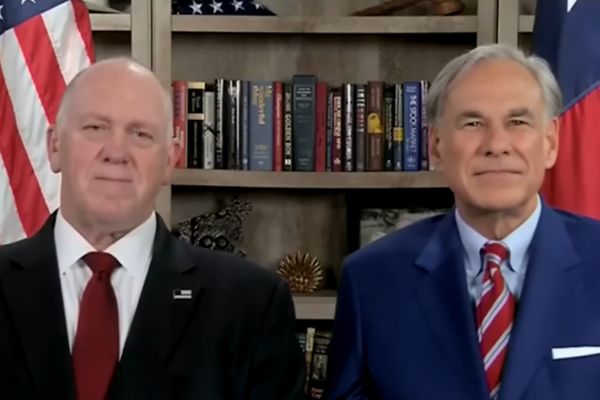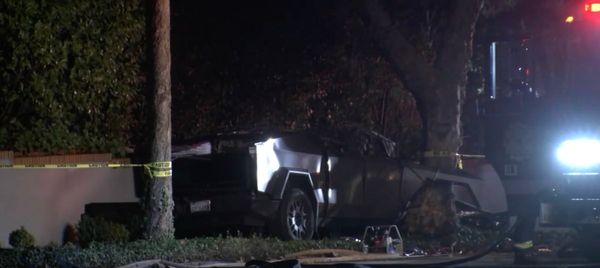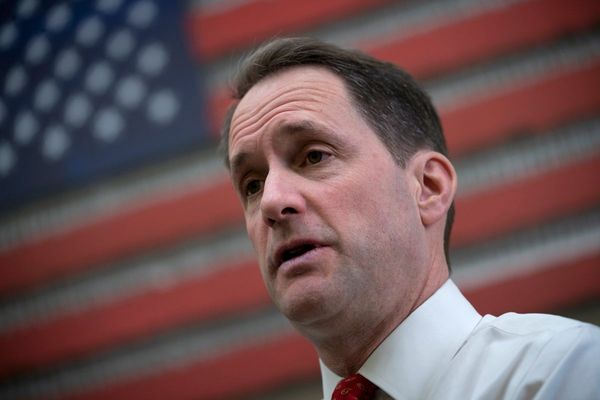
The following is a statement by climate protester Deanna “Violet” Coco. It has been edited for clarity and republished with permission.
If you are seeing this campaign, then I have been sentenced to prison for peaceful environmental protest. On April 14, I stopped a truck on the Harbour Bridge with my firefighter friend to draw attention to the climate and ecological emergency, and to the fact our firefighters do not have the tools they need to protect us.
This climate and ecological crisis will soon drive extinction events, food shortages, sea level rise and extreme weather, threatening every aspect of life as we understand it. The science is calling for immediate emergency action to avert or mitigate these consequences, but political leaders and fossil fuel corporations around the globe have either ignored or actively worsened the problem.
In 2021, I spoke with esteemed climate scientist and academic professor Will Steffen, who told me: “Massive floods, fires and heatwaves are sending us a clear message. On our present trajectory, we risk heading into a collapse of our globalised civilisation and a precipitous drop in human population — put simply, hell on earth. But we can avoid this disastrous future if we change the way we think, live our lives and interact with the rest of the living world.”
In light of the urgency of the situation, I have to do the most effective thing in bringing about political change. History has shown that at times of great crisis, when regular political procedure has proven incapable of enacting justice, it falls to ordinary people to take a stand to bring about change through civil disobedience.
Civil disobedience in the form of strikes, blockades, marches and occupations has played a crucial role in the development of democracy, and helped to secure precious rights here and around the world — including women’s suffrage, eight-hour working days, racial legal equality and environmental protections. Liberal political philosopher John Rawls asserted that a healthy democracy must have room for this kind of action.
But make no mistake, I do not want to be protesting. Protest work is not fun. It’s stressful, resource-intensive, scary and the police are violent. They refuse to feed me, refused to give me toilet paper and have threatened me with sexual violence. I spent three days in the remand centre. I do not enjoy breaking the law. I wish there was another way to address this issue with the gravitas that it deserves.
The second-largest petition to the Australian Parliament in our history was to declare a climate emergency. A majority of Australians want stronger action on climate, yet our elected representatives fail to represent us. Even when there is a landslide election of climate independents, new coalmines are being approved.
I respect the law and do not want to break the law. However, community leaders have pointed out that it is time to protest. The Stanford Social Innovation Review released an article stating how protest movements, such as Extinction Rebellion or Fireproof Australia, are more effective than NGOs at causing social change.
The confluence of these factors — the urgency of the situation, the historical role of civil disobedience and the calls of community and global leaders — is what led to me to decide to engage in non-violent protest actions this year. Now I am in prison, for engaging in democracy. Please donate to help me with my appeal against these unjust laws.
The Australian authorities’ crackdown on climate protesters is an alarming new trend. Citizens who protest and violate the law can face appropriate punishment, but the punishment should not be intended to prevent all protesters from exercising their fundamental right to protest.
Climate action will mean more people peacefully taking to the streets, not fewer, and the authorities should accept that.
As the United Nations secretary-general António Guterres said on April 5 this year: “Climate activists are sometimes depicted as dangerous radicals. But the truly dangerous radicals are the countries that are increasing the production of fossil fuels. Investing in new fossil fuels infrastructure is moral and economic madness.”
Originally sourced from Pearls and Irritations.







